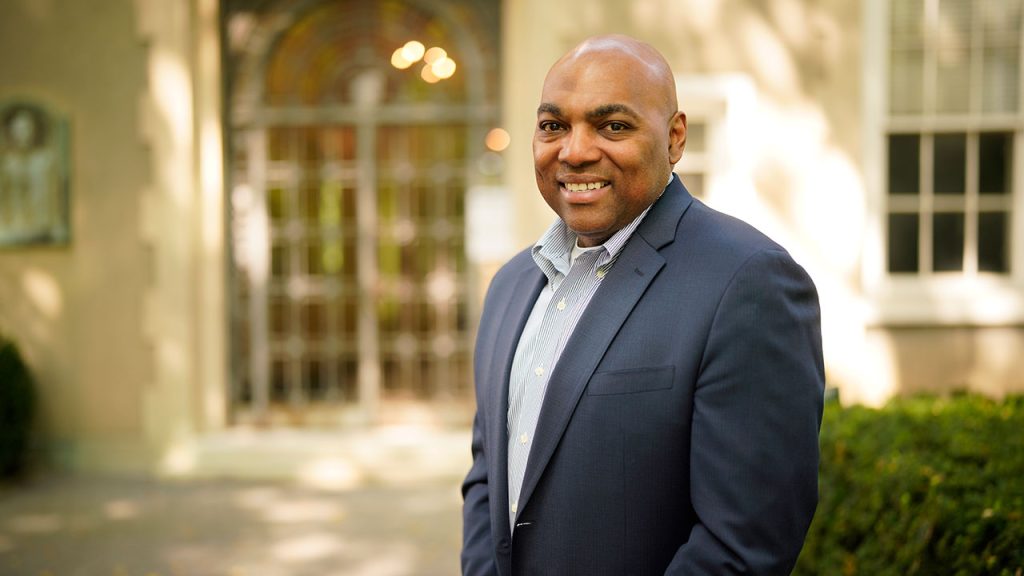In July, Fordham welcomed James A. Felton III as its inaugural vice president for equity & inclusion.
A former vice president for inclusive excellence at the College of New Jersey, Felton’s expertise in the field stretches back two decades. He noted that Fordham’s elevation of the role to a cabinet-level position demonstrates a serious investment in a culture of belonging.
“I was drawn to Fordham thanks to a combination of the people and, given this particular time in history, the University’s commitment to DEI rooted in Jesuit principles,” he said.
“It’s also an unparalleled opportunity to work and learn in the heart of New York City, which for me, is the greatest city in the world.”
What do you see as your role at Fordham?
I bring a holistic approach to looking at people, policies, and practices, particularly the underlying cultural dynamics within the organization. I want to know, what are the historical barriers that have prevented members of particular communities or groups from fully engaging in university life? You have to approach that by looking at an institution’s cultural practices and participating to some extent in the assessment and creation of policies. I’ll be examining these issues closely.
What does success in the field of diversity and inclusion look like to you?
I believe in the old adage that people don’t care how much you know until they know how much you care. Engaging people is essential if you want them to feel comfortable and trust you with this work. I also believe that making judgments based on data works effectively.
This year, Fordham’s incoming class is the most diverse in the University’s history. How does that diversity benefit the entire community?
The diversity of the incoming class enriches the entire community by fostering a vibrant exchange of perspectives, ideas, and experiences that enhance learning and personal growth for everyone. This diversity promotes a more inclusive and culturally aware environment, preparing students to thrive in a global society while strengthening Fordham’s commitment to equity and social justice.
The Supreme Court ruled last year that race-conscious admission programs at Harvard and the University of North Carolina were unlawful. How has that ruling affected the job of senior diversity officer?
The Supreme Court’s ruling on race-conscious admissions has significantly impacted the role of diversity officers, requiring them to find new, legally compliant ways to promote diversity on campus. It’s great that Fordham has a diverse incoming class despite that ruling. But the ruling will challenge CDOs and senior leadership to be more nimble, creative, and flexible in terms of a holistic approach to the recruitment process. This will require diversity officers to ramp up their focus on creating race-neutral strategies, such as outreach, mentorship, and socioeconomic considerations, while still advancing institutional diversity goals and ensuring inclusive environments.
How do you hope to utilize the Ph.D. in global leadership that you’re currently working toward?
I believe that I have been able to utilize the program to strengthen my ability to create inclusive, forward-thinking strategies that address complex challenges in diversity, equity, and inclusion. Much like Jesuit values, global leadership emphasizes the importance of diversity, equity, and inclusion by fostering collaboration, ethical decision-making, and a commitment to social justice across different cultural contexts. This will allow me to better serve diverse communities and advance equity initiatives within higher education.

